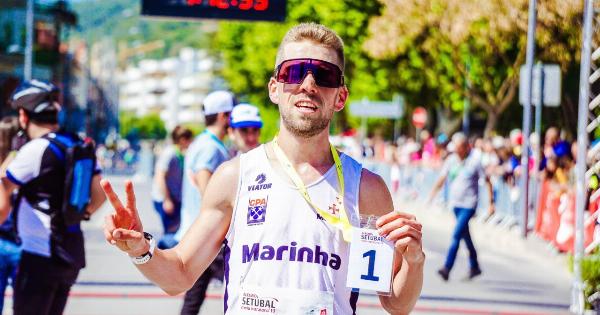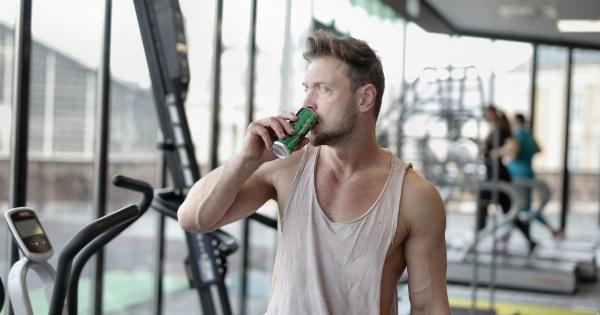Pre-exercise fluid intake is crucial for ensuring optimal performance, especially in physical activities that require high endurance like running, cycling, and swimming.
Proper hydration before exercise helps maintain the body’s fluid balance, regulates body temperature, reduces fatigue, and delays dehydration. However, the type and amount of fluid intake vary depending on individual needs, type of exercise, and environmental factors.
This article delves into the science behind optimal pre-exercise fluids, providing valuable information on how to hydrate before exercise effectively.
The Importance of Pre-Exercise Fluid Intake
Water is essential for sustaining life, and the human body needs it to function correctly. Drinking enough water is critical for athletes to maintain proper hydration levels during exercise. Adequate pre-exercise fluid intake helps to:.
- Increase blood circulation
- Regulate body temperature
- Reduce fatigue
- Delay dehydration
- Improve physical performance
Lack of proper hydration before exercise leads to dehydration, which can cause adverse health effects like headache, fatigue, muscle cramps, and low blood pressure. Severe dehydration can even lead to heat stroke and other life-threatening conditions.
Therefore, athletes, especially those engaging in high-intensity or long-duration exercises, need to drink enough fluids before exercise to maintain optimal performance and avoid health risks.
Factors Affecting Pre-Exercise Fluid Intake Requirements
Several factors determine the ideal pre-exercise fluid intake for athletes. These include:.
Individual Needs
Individuals vary in their fluid needs, depending on age, body size, gender, and other factors. Athletes with higher muscle mass or body weight may require more fluids than those with lower body weight or vice versa.
Type of Exercise
The type of exercise affects the amount and type of fluids needed. High-intensity and long-duration activities like marathon running or cycling require more fluids as they cause more sweating and loss of body fluids.
Environmental Factors
The environment also plays a role in determining the optimal pre-exercise fluid intake. On hot and humid days, athletes tend to sweat more, leading to more fluid loss.
In such conditions, athletes need to drink more fluids before exercise to prevent dehydration.
Types of Fluids for Pre-Exercise Hydration
Plain water is a popular pre-exercise fluid for many athletes. However, other fluids like sports drinks or juices offer additional benefits like providing electrolytes or carbohydrates.
The following are some of the fluids that athletes can drink before exercise:.
Water
Water is the primary fluid recommended for pre-exercise hydration, mainly because it is easily accessible, affordable, and calorie-free.
Drinking plain water is sufficient for most athletes who engage in short-duration or low-to-moderate-intensity activities.
Electrolyte Drinks/Sports Drinks
Electrolyte drinks or sports drinks contain essential minerals like sodium, potassium, and magnesium, which help to replenish electrolytes lost through sweating. They also provide carbohydrates, which serve as an energy source during exercise.
These drinks are suitable for athletes engaging in high-intensity or long-duration activities.
Juices
Fruit juices contain carbohydrates, vitamins, and minerals, making them ideal for pre-exercise hydration. However, athletes should choose pure juices without added sugars or artificial sweeteners.
Additionally, acidic juices like orange or grapefruit juice may cause digestive issues in some athletes, so it crucial to test different types before exercise.
Pre-Exercise Hydration Guidelines
Drinking enough fluids before exercise is crucial for optimal performance. The following are some guidelines on pre-exercise hydration:.
Drink Enough Fluids
Athletes should drink enough fluids to maintain proper hydration levels before exercise. The amount of fluid needed varies depending on individual needs, type of exercise, and environmental factors.
As a general rule, athletes should drink at least 500 ml of fluid 2-3 hours before exercise.
Drink at Regular Intervals
Drinking fluids in regular intervals is crucial for maintaining proper hydration levels. Athletes should drink fluids every 10-15 minutes before exercise to ensure optimal hydration levels.
Choose the Right Fluids
The type of fluid chosen for pre-exercise hydration should match the athlete’s needs, type of exercise, and environmental factors. As mentioned earlier, plain water is sufficient for most athletes.
However, for athletes engaging in high-intensity or long-duration activities, sports drinks or juices may provide additional benefits.
Avoid Overhydration
Overhydration can lead to hyponatremia, a condition where there is an imbalance of sodium levels in the body. This condition can result in seizures, coma, and even death.
Therefore, it is crucial for athletes not to drink excessive fluids before exercise.
Monitor Urine Color
Urine color is an indicator of an individual’s hydration levels. Clear or light-colored urine indicates proper hydration levels, while dark urine indicates dehydration.
Athletes should monitor their urine color to ensure that they are drinking enough fluids before exercise.
Conclusion
Optimal pre-exercise fluid intake is crucial for athletes looking to achieve optimal performance and prevent dehydration. The type and amount of fluid intake vary depending on individual needs, type of exercise, and environmental factors.
Athletes should drink enough fluids, choose the right fluids, drink at regular intervals, avoid overhydration, and monitor their urine color to ensure they are adequately hydrated before exercise.





























